Equal pay deal: Glasgow City Council approves £548m 'remortgage' plan
- Published
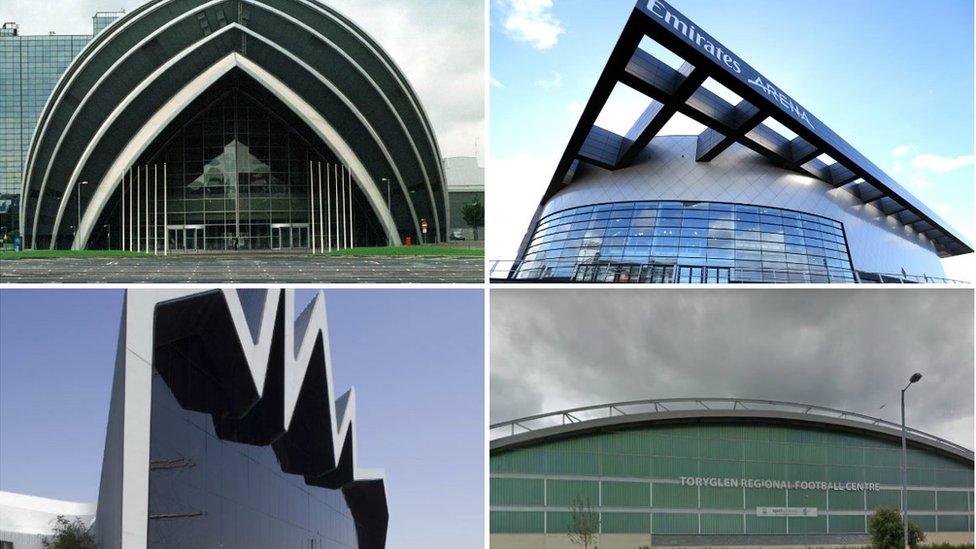
Venues such as the Armadillo, the Emirates Arena, the Riverside Museum and Toryglen Regional Football Centre will be remortgaged and leased back to the council with the cost of the lease designed to meet the loan repayments.
Glasgow City Council has approved plans to finance a £548m equal pay settlement by selling off major venues to an arm's length body and leasing them back.
The proposal involves transferring ownership of prominent buildings such as the Riverside Museum and the Emirates arena to a council-owned body.
It will take out long-term loans against the value of the venues.
They will then be rented back to the council with the cost of the lease designed to meet the loan repayments.
Glasgow City Council leader Susan Aitken told BBC Scotland the annual cost of the deal, which includes interest rates, was likely to be about £25m annually for "years to come".
The council needs to raise about £548m to settle equal pay claims from thousands of women going back more than a decade.
Ms Aitken, who inherited the liability for the claims when her SNP administration took over from Labour in May 2017, said she was "delighted" to have won backing for the deal.
She said it "finally delivers pay justice for thousands of women in our workforce".
Ms Aitken said the claims would start to be settled this summer.
She added that it "starts to put right a wrong that has damaged the council, its workforce and the city for too long".

Which venues are being "remortgaged"?
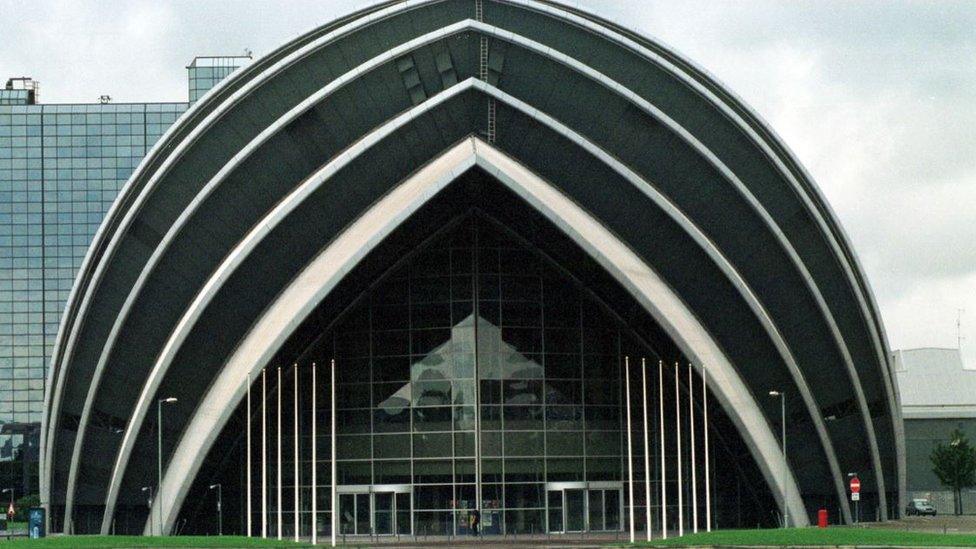
The SEC Armadillo (above), and the Royal Concert Hall are also assets of the City Council
Under proposals, the following venues would be transferred to the City Property portfolio:
Emirates Arena
Riverside Museum
SEC Armadillo
Scotstoun Leisure Centre
Tollcross International Swimming Centre
Glasgow Royal Concert Hall
Glasgow Museums Resource Centre
City Halls
Toryglen Football Centre
Gorbals Leisure Centre
Bellahouston Leisure Centre

Substantial annual bill
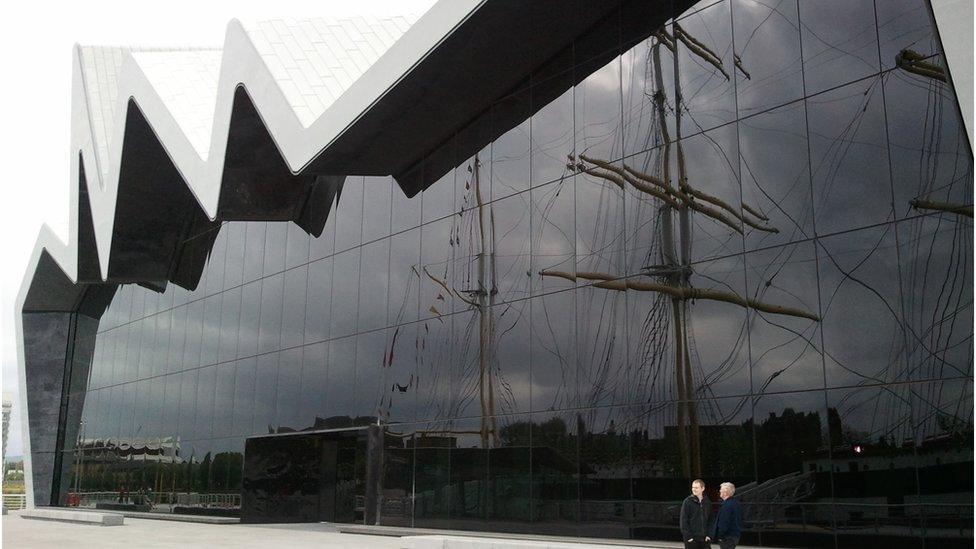
The Riverside Museum is one of the venues that could be sold and leased back by the council
The deal agreed by councillors on Glasgow's City Administration Committee will transfer ownership of proposed venues to City Property Glasgow Investments LLP (CPGI), a company owned by the council, which would pay for them by remortgaging them.
Glasgow City Council insisted the buildings would remain in the city's ownership and users would not see any difference in how they accessed them on a day-to-day basis.
However, the council will have a substantial annual bill for decades to pay back the money it has borrowed.
Ms Aitken told the BBC's Good Morning Scotland programme: "It will be challenging and over time we may have to make some difficult decisions but we are confident that we can balance our budget without having to make very drastic cuts."
She said service reform and partnerships will be used to meet the costs of the deal.

Susan Aitken said the deal will deliver 'pay justice' for thousands of women
She also told the programme some buildings which are not "fit for purpose" might be closed and alternative arrangements put in place to replace lost services.
The legacy of the plan, which addresses claims debating back more than a decade, will cast a shadow over the council's finances for some time.
Ms Aitken said: "It is something that the council will be paying for for years to come and we will be paying at a high rate for years to come.
"It's better that we are paying it for years to come than attempting to do it all in a short period of time.
"That really would have an impact on services in communities in Glasgow.
"It is better that, like any mortgage, we do it over a period of time."
Ms Aitken said the Scottish government has been "extremely helpful" but confirmed she has not been offered any money.
She added: "The people of Scotland shouldn't have to pay for Glasgow's mistakes.
"Other local authorities have settled equal pay liabilities on their own.
"This is Glasgow's problem. It is up to Glasgow to fix."
- Published1 February 2019

- Published18 January 2019
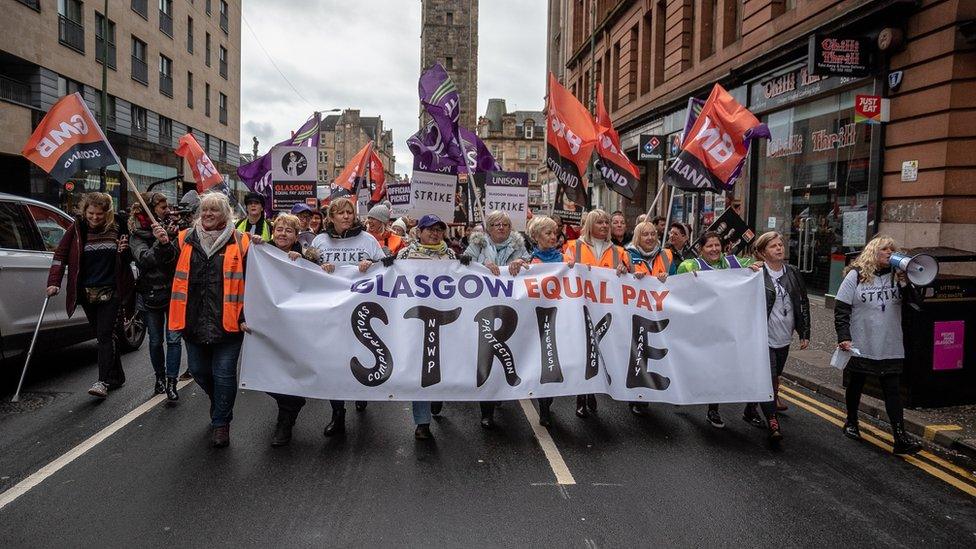
- Published17 January 2019
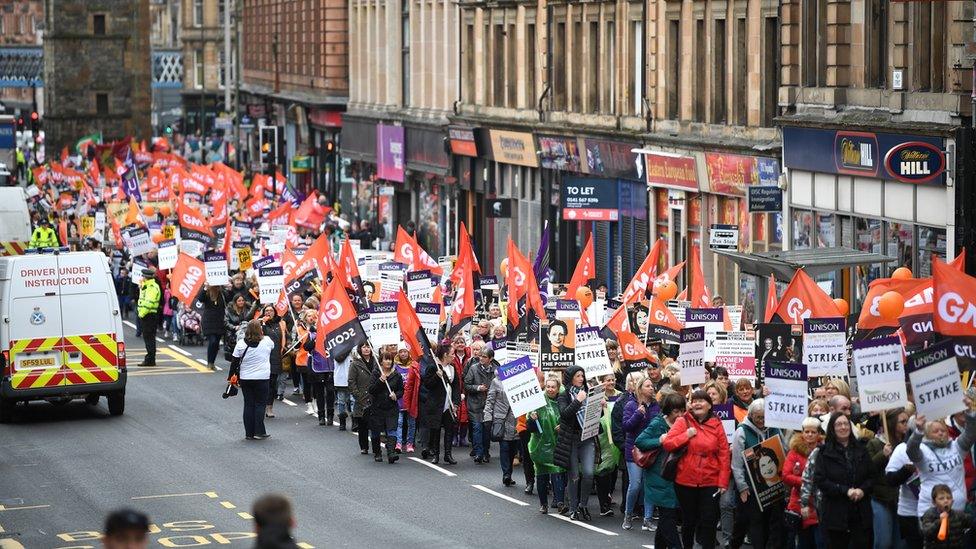
- Published23 October 2018
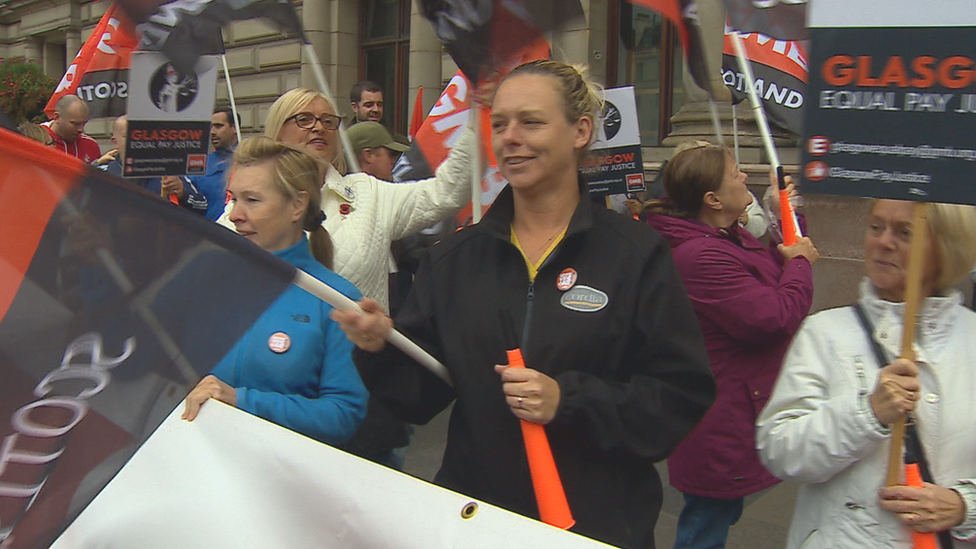
- Published13 September 2018
